September Review: Key Insights from the Sentemlyns Podcast
Welcome to the latest edition of the Sentemlyns podcast blog. I’m Simon Carly, and today we're diving into the significant papers and events from September. We're a tad late this month due to the bustling activities surrounding the Sentemlyns conference and the Teaching Court course, both of which were tremendous successes here in Manchester. Stay tuned as we delve into the highlights of September, from groundbreaking studies to enlightening conferences.
Management of the Airway in Cardiac ArrestKey Studies by Ashley Levy
We kick off with a comprehensive look at two pivotal papers by Ashley Levy, focusing on airway management in cardiac arrest. These studies, eagerly awaited by the medical community, provide critical insights into pre-hospital care.
Airways 2 StudyPublished in JAMA in August, the Airways 2 study examined over 9,000 patients in the UK pre-hospital environment who suffered cardiac arrests. The study excluded patients who quickly returned to spontaneous circulation after a couple of shocks. The remaining patients were randomized into two groups: those receiving a supraglottic airway and those receiving an endotracheal tube.
Findings: The study revealed no significant difference in outcomes between patients who received endotracheal intubation versus those with a supraglottic device. This challenges the long-held belief that intubation is superior in cardiac arrest scenarios.
Implications: The findings suggest that in pre-hospital settings, the choice of airway device might be less critical than previously thought. It underscores the importance of managing ventilation effectively, regardless of the airway device used. For many practitioners, this means opting for the quickest and easiest airway device, typically a supraglottic airway. However, in prolonged or complex cases, converting to an endotracheal tube might still be preferable.
Laryngeal Tube vs. Endotracheal Intubation in the US StudyAnother study published in JAMA, conducted in the US, compared endotracheal intubation with the use of a laryngeal tube. Similar to the Airways 2 study, it found no significant advantage to using an endotracheal tube. Interestingly, this study hinted at a slight benefit for the laryngeal tube, though this requires further investigation.
Conclusion: Both studies indicate that for pre-hospital cardiac arrest, the priority should be securing an airway quickly and effectively. While supraglottic airways may suffice in many cases, endotracheal tubes remain a viable option in more complex scenarios.
Global Health and ResponsibilityStefan Brujins’ Perspective
Stefan Brujins, a friend and colleague now working in the UK, provided a thought-provoking post on our responsibilities toward global health. Reflecting on his experiences growing up in South Africa, Stefan challenges us to reconsider our assumptions about equality and diversity in healthcare.
He directs us to an impactful presentation by Annette Alenio at SMACC, emphasizing the need for togetherness in global health. This presentation is a must-watch for anyone interested in global health, offering valuable insights on how we can contribute more effectively to the global medical community.
Highlights from the EUSEM ConferenceDiverse Learning Experiences
The EUSEM conference, a combined event with the Royal College of Emergency Medicine, held in Glasgow, was a highlight of September. This event is renowned for its diversity and the unique learning opportunities it offers.
Treatment of Massive PE by Dan HornerDan Horner kicked off the conference with an insightful presentation on managing massive pulmonary embolism (PE). His update reflects the latest advancements and the complexities involved in clinical decision-making for thrombolysis in emergency settings. The emphasis on shared decision-making between clinicians and patients was particularly noteworthy.
European Simulation Cup VictoryMembers of the Sentemlyns team joined the Royal College of Emergency Medicine team in the European Simulation Cup and emerged victorious. This competition, involving around 14 teams, culminated in a major incident simulation. The win was a testament to the team's skill and collaboration.
Narrative Learning and Storytelling in Emergency MedicineSimon Carly’s Presentation
I had the opportunity to present on the use of narrative learning and storytelling in emergency medicine. While not a traditional clinical topic, the importance of engaging learners through storytelling cannot be overstated. Case reports, despite being viewed skeptically in literature, remain powerful tools for education when used correctly.
I drew heavily on the work of Jonathan Gottschall, particularly his book "The Storytelling Animal." Understanding the science behind storytelling can transform educational strategies, making them more effective and memorable.
Managing Sick NeonatesNatalie’s Comprehensive Guide
Neonates, with their unique physiology, often present challenges in emergency medicine. Natalie provided an excellent post on managing sick neonates, using the analogy of micro machines to explain various aspects of neonatal care. From glucose metabolism issues to identifying cardiac problems in premature babies, her guide is invaluable for practitioners who may not regularly deal with neonates.
Monkeypox AwarenessJanis Byombi’s Expertise
Monkeypox, a relatively obscure virus related to smallpox, has seen a recent outbreak with cases imported to the UK. Janis Byombi, our expert in international and tropical diseases, detailed the symptoms, diagnosis, and management of monkeypox. While generally self-limiting, awareness and proper handling are crucial, especially for healthcare workers who might be at risk.
RecessTO Conference InsightsInnovative Approaches to Learning
Ashley Liebergen shared her experiences from the RecessTO conference organized by Chris Hicks in Toronto. The conference's innovative approach combined traditional knowledge sharing with practical workshops and simulations, enhancing the overall learning experience. This method of building knowledge progressively throughout the day was particularly effective and engaging.
EMS Gathering in IrelandLearning with Leisure
The EMS Gathering in Cork, Ireland, offered a unique blend of formal lectures and experiential learning. This “learning with leisure” approach took attendees to various locations around Cork for hands-on experiences, from airport emergencies to extrications.
Emotional Learning Experience One standout session was a cardiac arrest scenario staged in a theatre, focusing on the interaction between medical teams and the patient's relatives. This emotionally charged and theatrically presented scenario highlighted the importance of communication and empathy in emergency medicine.
Zero Point SurveyEnhancing Resuscitation Preparedness
Finally, I rounded off September with a post on the zero-point survey. This concept emphasizes that resuscitation begins before the patient arrives, utilizing the critical minutes from the initial alert to prepare thoroughly. This proactive approach can significantly improve resuscitation outcomes and efficiency.
ConclusionSeptember was a month of substantial learning and reflection for the Sentemlyns team. From groundbreaking studies in airway management to innovative approaches in global health and emergency medicine education, we've covered a broad spectrum of topics. As we look forward to October and beyond, we remain committed to bringing you the latest insights and developments in emergency medicine.
Thank you for joining us on this journey. Stay tuned for more updates and have a great day!
More Episodes
Ep 253 - Highlights from the London Trauma Conference 2024
 2024-12-11
2024-12-11
 659
659
Ep 252 - ECMO in Trauma with Chris Bishop at Tactical Trauma 24
 2024-12-04
2024-12-04
 1.1k
1.1k
Ep 251 - Bad Behaviours in Teams with Liz Crowe at Tactical Trauma 24
 2024-11-27
2024-11-27
 1.3k
1.3k
Ep 250 - Monthly Round Up September 2024 - Patient Experience in the ED, Dirty Adrenaline, and More!
 2024-11-20
2024-11-20
 1.3k
1.3k
Ep 249 - Care in the Hot Zone with Claire Park at Tactical Trauma 2024
 2024-11-14
2024-11-14
 1.4k
1.4k
Ep 248 - Prehospital eCPR with Alice Hutin at Tactical Trauma 2024
 2024-11-06
2024-11-06
 1.4k
1.4k
Ep 247 - August 2024 Round-Up - Goldilocks Moments, Nasal Analgesia, and Public Health in the ED
 2024-10-30
2024-10-30
 1.3k
1.3k
Ep 246 - Simulation for Elite Team Performance with Andrew Petrosoniak at Tactical Trauma 2024
 2024-10-23
2024-10-23
 1.5k
1.5k
Ep 245 - Leading through failure with Kevin Cyr at Tactical Trauma 2024
 2024-10-18
2024-10-18
 1.9k
1.9k
Ep 244 - July 2024 Monthly Update - Chest Pain, REBOA, Lidocaine patches and lots of paediatric emergency medicine
 2024-10-06
2024-10-06
 1.5k
1.5k
Ep 243 - The Subarachnoid Haemorrhage in Emergency Department (SHED) Study
 2024-09-26
2024-09-26
 1.8k
1.8k
Ep 242 - Prehospital Neuroprotection with Ed Langford at PREMIER 2024
 2024-08-21
2024-08-21
 1.6k
1.6k
Ep 241 - Paediatric Palliative Care with Tim Warlow at PREMIER 2024
 2024-08-14
2024-08-14
 1.2k
1.2k
Ep 240 - June 2024 Monthly Round Up - Nebulised Ketamine, Risky Intubations, Better Presentations, DSED, Preoxygenation and more
 2024-08-07
2024-08-07
 1.8k
1.8k
Ep 239 - Button Battery Ingestion with Francesca Steadman at PREMIER 2024
 2024-07-31
2024-07-31
 1.4k
1.4k
Ep 238 - Positive and Negative Predictive Values: Critical Appraisal Nugget
 2024-07-24
2024-07-24
 1.3k
1.3k
Ep 237 - Hybrid Closed Loop Insulin Pumps with Nicola Trevelyan at PREMIER 2024
 2024-07-17
2024-07-17
 1.3k
1.3k
Ep 236 - Occlusive Myocardial Infarction, ECGs and AI with Steve Smith
 2024-07-10
2024-07-10
 1.9k
1.9k
Ep 235 - Eating Disorders in the Emergency Department with Anna Kyle at PREMIER 2024
 2024-07-02
2024-07-02
 1.4k
1.4k
Ep 234 - May 2024 Monthly Round Up - RCEM conference highlights, being EPIC and more
 2024-06-27
2024-06-27
 1.4k
1.4k
Create your
podcast in
minutes
- Full-featured podcast site
- Unlimited storage and bandwidth
- Comprehensive podcast stats
- Distribute to Apple Podcasts, Spotify, and more
- Make money with your podcast
It is Free
You may also like
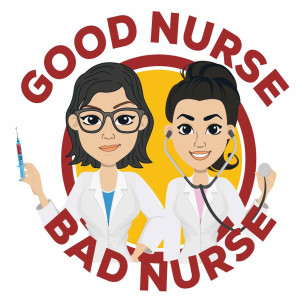
Good Nurse Bad Nurse

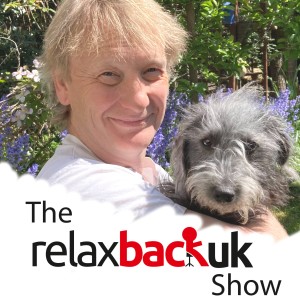
The Relaxback UK Show

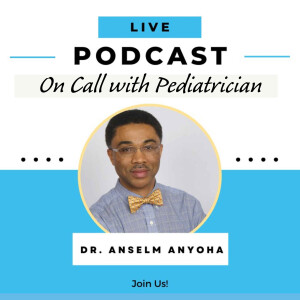
On Call With Dr. Anselm Anyoha

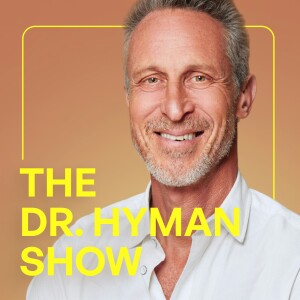
The Dr. Hyman Show

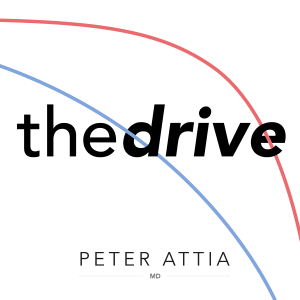
The Peter Attia Drive

- Privacy Policy
- Cookie Policy
- Terms of Use
- Consent Preferences
- Copyright © 2015-2024 Podbean.com

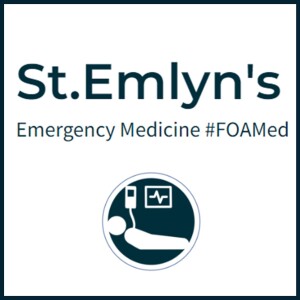
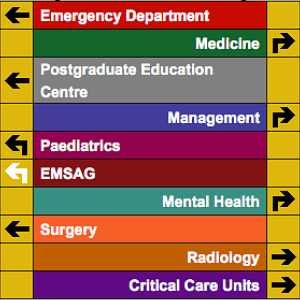

 iOS
iOS Android
Android